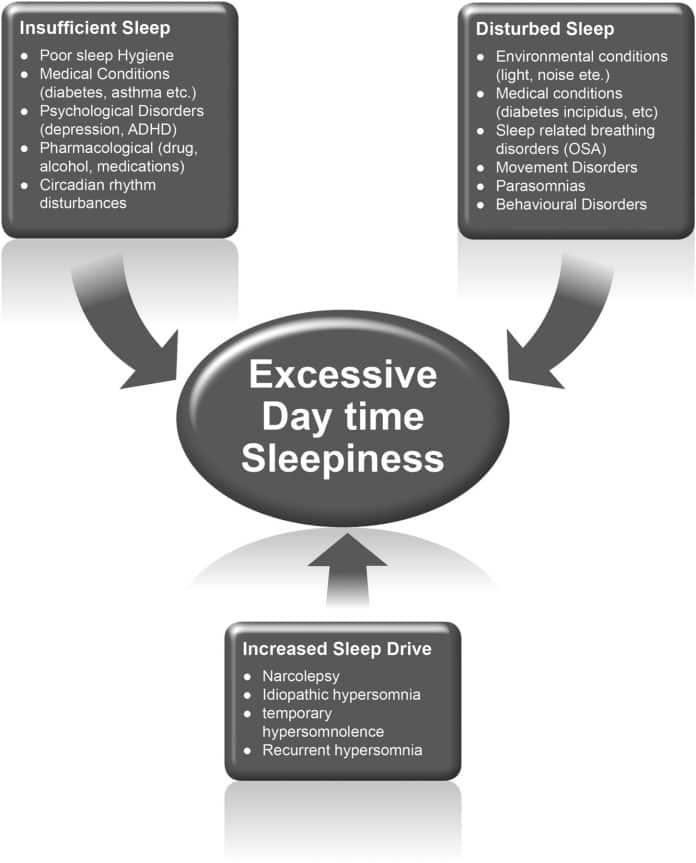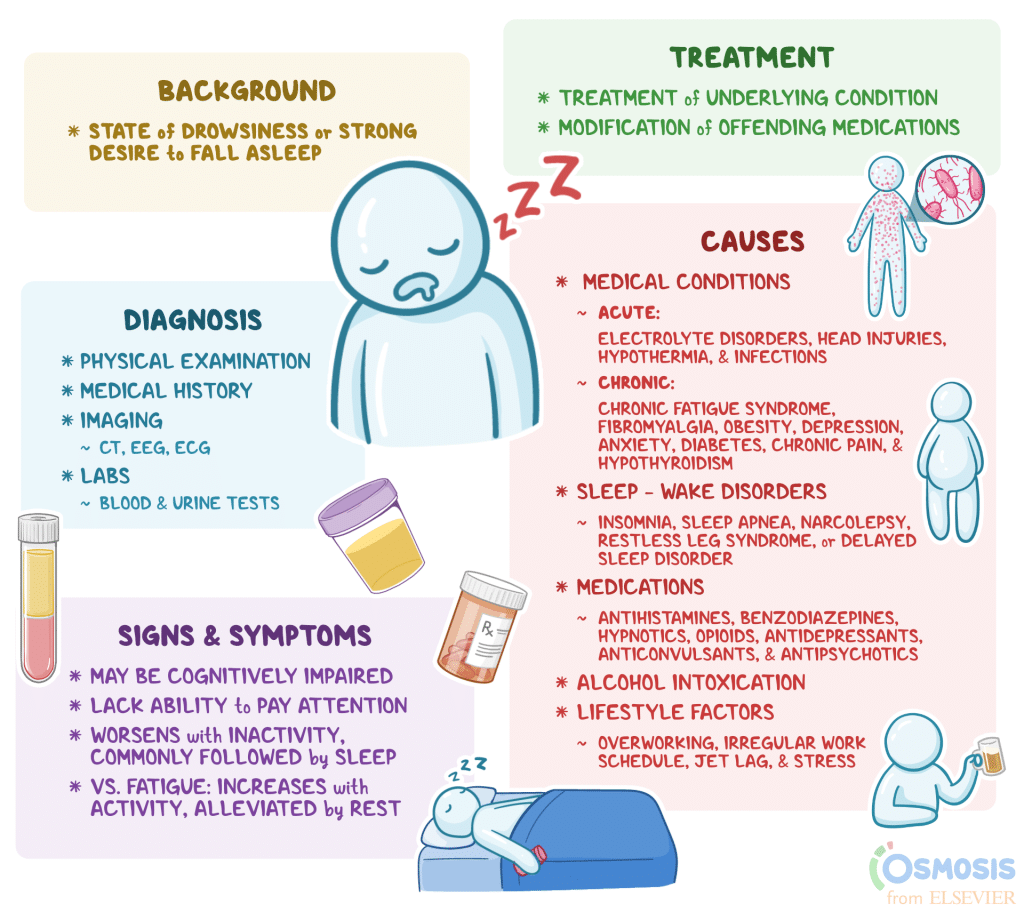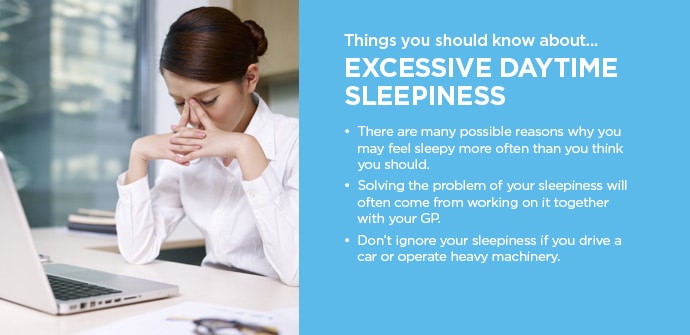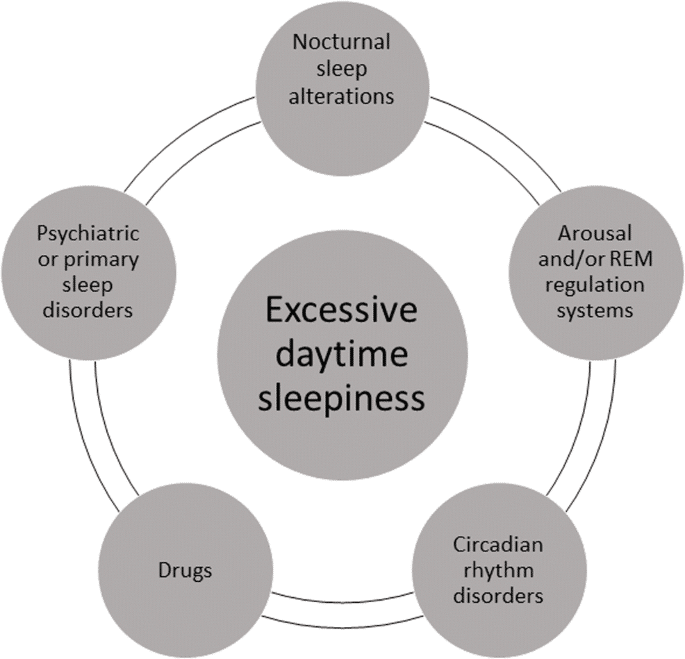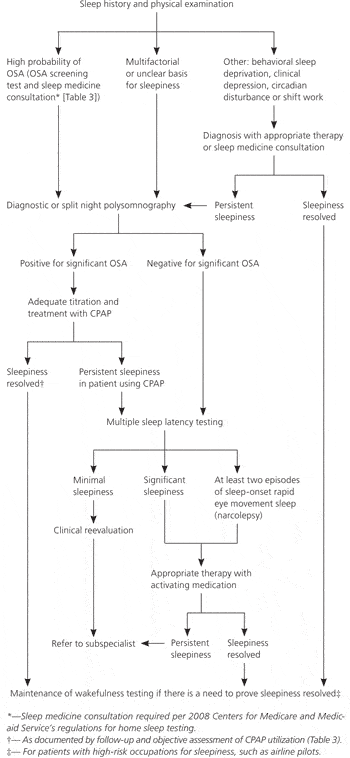Have you ever wondered what exactly causes that overwhelming urge to sleep during the day? It’s a common phenomenon known as excessive daytime sleepiness, and today we are diving into the various factors that might be causing it. From sleep disorders to lifestyle choices, we will explore the potential reasons behind this drowsy condition that affects so many of us. So let’s uncover the secrets behind excessive daytime sleepiness and discover how we can combat it for a more energized and productive day!
Review contents
1. Sleep Disorders
Sleep disorders are a common cause of excessive daytime sleepiness. They can interfere with the quality and quantity of our sleep, leaving us feeling tired and fatigued during the day. Here are some of the most common sleep disorders:
1.1 Insomnia
Insomnia is characterized by difficulty falling asleep or staying asleep, or both. It can be caused by various factors, such as stress, anxiety, depression, or certain medications. When we suffer from insomnia, our sleep is often fragmented and restless, leading to daytime drowsiness.
1.2 Sleep Apnea
Sleep apnea is a condition in which our breathing repeatedly stops and starts during sleep. This interruption in our breathing can cause us to wake up multiple times throughout the night, leading to poor sleep quality and excessive daytime sleepiness. Sleep apnea is often associated with loud snoring and is more common in overweight individuals.
1.3 Narcolepsy
Narcolepsy is a neurological disorder that affects the brain’s ability to regulate sleep-wake cycles. People with narcolepsy experience excessive daytime sleepiness, sudden and uncontrollable episodes of falling asleep during the day, and sometimes even muscle weakness or paralysis during sleep. Narcolepsy can significantly impact our daily life and productivity.
1.4 Restless Legs Syndrome
Restless Legs Syndrome (RLS) is a condition characterized by an irresistible urge to move our legs, usually accompanied by an uncomfortable sensation in the legs. RLS symptoms typically worsen at night, making it difficult to fall asleep and stay asleep. The lack of quality sleep due to RLS can result in excessive daytime sleepiness.
2. Medical Conditions
Certain medical conditions can contribute to excessive daytime sleepiness. These conditions may directly disrupt our sleep or cause other symptoms that interfere with our sleep-wake cycle. Here are some examples:
2.1 Depression
Depression is a mood disorder that can impact various aspects of our lives, including our sleep. Many individuals with depression experience insomnia, where they have difficulty falling asleep or staying asleep. On the other hand, some people with depression may also experience hypersomnia, where they sleep excessively but still feel tired during the day.
2.2 Anxiety
Similar to depression, anxiety can significantly affect our sleep patterns. Excessive worrying and racing thoughts can make it challenging to relax and fall asleep. Additionally, anxiety disorders often coexist with other sleep disorders, such as insomnia or sleep apnea, further contributing to daytime sleepiness.
2.3 Chronic Fatigue Syndrome
Chronic Fatigue Syndrome (CFS) is a complex disorder characterized by extreme fatigue that doesn’t improve with rest. People with CFS often experience unrefreshing sleep, meaning their sleep is not restorative and doesn’t provide the necessary rest. This can lead to ongoing daytime sleepiness and a decreased ability to function normally.
3. Medications and Substances
Certain medications and substances can disrupt our sleep patterns and contribute to excessive daytime sleepiness. Here are some examples:
3.1 Antidepressants
While antidepressants are prescribed to treat depression and anxiety, some of them can cause daytime drowsiness as a side effect. It’s important to work closely with a healthcare professional to find the right dosage and type of antidepressant that minimizes this side effect and doesn’t negatively impact our sleep.
3.2 Antihistamines and Allergy Medications
Antihistamines, commonly used to relieve allergy symptoms, can have sedating effects that interfere with our sleep. These medications can make us feel drowsy during the day and contribute to daytime sleepiness. It’s important to read the labels and take these medications at an appropriate time to minimize their impact on our sleep.
3.3 Sedatives and Tranquilizers
Sedatives and tranquilizers, including medications like benzodiazepines, are often prescribed to treat anxiety or insomnia. While they can help promote sleep, they can also cause drowsiness and grogginess during the day. It’s crucial to use these medications under the guidance of a healthcare professional and closely monitor their effects on our sleep patterns.
4. Lifestyle Factors
Our lifestyle choices and habits can have a significant impact on our sleep quality and daytime sleepiness. Here are some lifestyle factors that can contribute to excessive daytime sleepiness:
4.1 Poor Sleep Habits
Maintaining a consistent sleep schedule and creating a conducive sleep environment is crucial for a good night’s sleep. Poor sleep habits, such as irregular sleep patterns, inconsistent bedtimes, or engaging in stimulating activities before bedtime, can disrupt our sleep and lead to daytime drowsiness.
4.2 Shift Work
Working irregular or night shifts can disrupt our natural sleep-wake cycle and make it difficult to establish a routine. The misalignment of our internal body clock with our work schedule can lead to sleep disturbances and excessive daytime sleepiness. It’s important to implement strategies to mitigate the impact of shift work on our sleep, such as creating a dark and quiet sleep environment and establishing a consistent sleep routine.
4.3 Lack of Physical Activity
Regular physical activity has numerous benefits, including improved sleep quality. Engaging in regular exercise can help regulate our sleep-wake cycle, reduce daytime sleepiness, and promote overall well-being. However, leading a sedentary lifestyle can contribute to poor sleep quality and excessive daytime sleepiness.
4.4 Excessive Caffeine Consumption
While a cup of coffee in the morning can provide a much-needed energy boost, excessive caffeine consumption throughout the day can interfere with our sleep. Caffeine is a stimulant that can make it difficult to fall asleep and stay asleep. Consuming large amounts of caffeine close to bedtime can disrupt our sleep-wake cycle and contribute to daytime sleepiness.
5. Environmental Factors
Our sleeping environment plays a crucial role in the quality of our sleep. Here are some environmental factors that can contribute to excessive daytime sleepiness:
5.1 Noisy Environment
Excessive noise, such as traffic, loud neighbors, or environmental disturbances, can disrupt our sleep and prevent us from getting a restful night. Continuous exposure to noise can lead to fragmented sleep and excessive daytime sleepiness. Implementing soundproofing measures or using earplugs can help create a quieter sleep environment.
5.2 Uncomfortable Sleeping Conditions
An uncomfortable mattress, pillows, or bedding can make it difficult for us to relax and fall asleep. Physical discomfort can lead to poor sleep quality and increase the likelihood of daytime sleepiness. Investing in a comfortable and supportive sleep surface can significantly improve our sleep and reduce daytime fatigue.
5.3 Temperature and Humidity
The temperature and humidity levels in our bedroom can impact our ability to fall asleep and stay asleep. Extreme temperatures or high humidity can make it uncomfortable to sleep, leading to disrupted sleep and daytime sleepiness. Maintaining a cool and well-ventilated sleeping environment can promote better sleep quality and reduce daytime fatigue.
In conclusion, excessive daytime sleepiness can have various underlying causes, including sleep disorders, medical conditions, medications and substances, lifestyle factors, and environmental factors. Identifying and addressing the specific cause of our excessive sleepiness is important for improving our sleep quality and overall well-being. If excessive daytime sleepiness persists or significantly affects our daily functioning, it’s essential to seek medical advice for a comprehensive evaluation and appropriate treatment.

